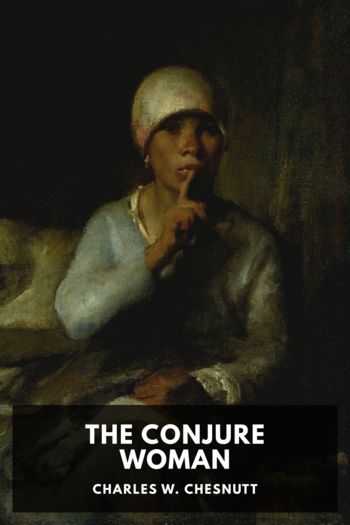The Lives of the Caesars, Suetonius [best book club books for discussion .TXT] 📗

- Author: Suetonius
Book online «The Lives of the Caesars, Suetonius [best book club books for discussion .TXT] 📗». Author Suetonius
It would be trivial and pointless to add to this an account of his treatment of his relatives and friends, Ptolemy, son of king Juba, his cousin (for he was the grandson of Mark Antony by Antony’s daughter Selene), and in particular Macro himself and even Ennia, who helped him to the throne; all these were rewarded for their kinship and their faithful services by a bloody death.
He was no whit more respectful or mild towards the senate, allowing some who had held the highest offices to run in their togas for several miles beside his chariot and to wait on him at table, standing napkin in hand387 either at the head of his couch, or at his feet. Others he secretly put to death, yet continued to send for them as if they were alive, after a few days falsely asserting that they had committed suicide. When the consuls forgot to make proclamation of his birthday, he deposed them, and left the state for three days without its highest magistrates.388 He flogged his quaestor, who was charged with conspiracy, stripping off the man’s clothes and spreading them under the soldiers’ feet, to give them a firm footing as they beat him.
He treated the other orders with like insolence and cruelty. Being disturbed by the noise made by those who came in the middle of the night to secure the free seats in the Circus, he drove them all out with cudgels; in the confusion more than twenty Roman knights were crushed to death, with as many matrons and a countless number of others. At the plays in the theatre, sowing discord between the commons and the knights, he scattered the gift tickets389 ahead of time, to induce the rabble to take the seats reserved for the equestrian order. At a gladiatorial show he would sometimes draw back the awnings when the sun was hottest and give orders that no one be allowed to leave; then removing the usual equipment, he would match worthless decrepit gladiators against mangy wild beasts, and have sham fights390 between householders who were of good repute, but conspicuous for some bodily infirmity. Sometimes too he would shut up the granaries and condemn the people to hunger.
The following are special instances of his innate brutality. When cattle to feed the wild beasts which he had provided for a gladiatorial show were rather costly, he selected criminals to be devoured, and reviewing the line of prisoners without examining the charges,391 but merely taking his place in the middle of a colonnade, he bade them be led away “from baldhead to baldhead.”392 A man who had made a vow to fight in the arena,393 if the emperor recovered, he compelled to keep his word, watched him as he fought sword in hand, and would not let him go until he was victorious, and then only after many entreaties. Another who had offered his life for the same reason, but delayed to kill himself, he turned over to his slaves, with orders to drive him through the streets decked with sacred boughs and fillets, calling for the fulfilment of his vow, and finally hurl him from the embankment. Many men of honourable rank were first disfigured with the marks of branding-irons and then condemned to the mines, to work at building roads, or to be thrown to the wild beasts; or else he shut them up in cages on all fours, like animals, or had them sawn asunder. Not all these punishments were for serious offences, but merely for criticising one of his shows, or for never having sworn by his Genius.394 He forced parents to attend the executions of their sons, sending a litter for one man who pleaded ill health, and inviting another to dinner immediately after witnessing the death, and trying to rouse him to gaiety and jesting by a great show of affability. He had the manager of his gladiatorial shows and beast-baitings beaten with chains in his presence for several successive days, and would not kill him until he was disgusted at the stench of his putrefied brain. He burned a writer of Atellan farces alive in the middle of the arena of the amphitheatre, because of a humorous line of double meaning. When a Roman knight on being thrown to the wild beasts loudly protested his innocence, he took him out, cut off his tongue, and put him back again.
Having asked a man who had been





Comments (0)